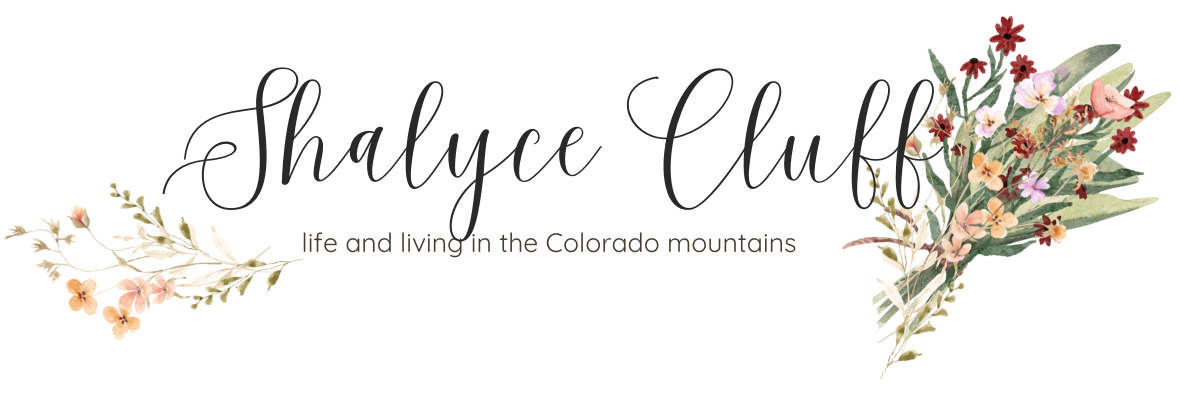Judge Not–Includes Yourself
I heard the phrase “Judge Not” a lot growing up.
I heard it in words, but it didn’t seem to often happen in practice. All around me the world was full of judgement. It’s easier to judge than not. It feeds our ego to be able to judge ourselves above someone else. When we can find a way to justify our judgements, it feels good. It’s so ingrained in culture and society that judging comes very easily.
It’s natural to place an interpretation on our experiences.
We want to understand why things play out the way they do or why people act the way they do and what it all means. It’s a puzzle we seek to figure out to aid our interpretation of the world. This intrinsic tendency, becomes a learned mechanism as it is supported and encouraged by the world in which we live.
As early as toddlers exploring the world and seeking to understand it, we are told do this, or don’t do that. We begin to label and judge our behavior through the reactions of authority. Those reactions tell us whether we have acted accordingly or not and what that means about who we are as a person. This experience continues each and every day that we grow.
In school, every learning experience we have is judged, A–you are excellent, B–eh, above average, or F you have failed. The light innate tendency to judge is solidified, almost in stone, by the time we make it to adulthood. All cultures outline a set of norms that are expected and then mentally, emotionally and physically, force or coerce compliance. Compliance to cultural values, which we begin learning from the cradle, becomes our inner voice of judgement for better or worse.
Judging usually feels good.
As we judge others, we relieve an inner pressure to be or do what we believe is right, especially in areas in which we struggle. It allows us to tell ourselves that we are doing well or at least okay. Judging someone else poorly means we can elevate ourselves.
People, in general, in any group, are judgemental. It’s not reserved for religious or non-religious, conservatives or liberals or any of the other labels we like to use. Those who judge are fighting an internal struggle of acceptance.
Despite the universal teaching practices of judgement, not everyone falls into this trap. There are some who are masters of acceptance of their self as well as others. They are kind and compassionate. These individuals aren’t worried about how they measure up against others, but instead on how others are doing. They can often relate with the deepest struggles and most heartbreaking trials, because they have been there. You could spend all day with a person like this and only hope that they would choose to be friends with you–which they usually do because they accept other people for who they are instead of constantly finding fault.
These individuals uplift strengths rather than degrade weaknesses.
We will always judge others harshly, until we can learn to stop judging ourselves harshly.

When we are a harsh self-judges, we will likewise be harsh judges of others. Our internal feelings are reflected in our external behavior. If we have compassion, love and encouragement for ourselves–that translates into our relationships with others. If we have hate and self-loathing, or just disappointment in our self, we will find others on whom we can redirect these feelings.
Non-judgement does not mean that we and others do not learn, grow and do better in the future, but rather it is acceptance that we did the best we could with what we had in that moment, and others are doing the same. Rather than defaulting to judge, we instead display grace.
In the Bible, Matthew 7:2 teaches we will be judged with the same judgement with which we judge others.
I’ve always thought of judgement day, from a Christian perspective, as a time when someone else makes determinations as to how I have done in life.
However, it is very likely that we are our own judge. Those of us who have truly learned to “judge not” will be kind and compassionate judges, and those who have spent our lives judging ourselves and others will, with that same judgement, once again be judged.
What’s so bad about judging?
The biggest problem with judging is that we seldom have enough information for a fair and just judgement. This is true of self-judgement as well as the judgement we place on others. We are generally highly conditioned to judge in a very specific way and it is hard to step beyond that.
When you fail, you assume that says something about yourself, rather than about the action you need to take (which would be a more appropriate judgement). However, anyone can learn to become a compassionate judge. When you fail it most often means you need to work harder next time, or you have more to learn in order to succeed.
Unfortunately, we often fail to take in additional information because we have been so carefully programmed to make snap judgement based on our life experience.
Nobody talked to me. Judgement–I am unlikable.
I didn’t get the job. Judgement–I’m a failure.
This transfers easily to others. If someone has been unemployed, they must be lazy. If someone is outside our social circle, they must be weird.
We don’t always have to judge things.
It feels like we always need to analyze and try to understand our experiences and choices. Some of it is good and necessary. Judging does have a purpose. It can keep us safe from danger and help us make necessary choices. But you know what else is good? To let something happen, simply observe the reality of it and then move on. Things can simply happen without some deep underlying meaning about who we or someone else is as a person.
Judgement should be used to learn from our experience in a positive way that encourages us to move forward.
Unfortunately, much of our self-judgement and our judgement of others is not positive or encouraging.

When directed towards self, judgements often end up leading us to the wrong conclusion. We can always make judgements from the angle of compassion and love, but for most of us, we have not been taught to judge ourselves in this way.
It is rare for a child to receive an “F” and then be embraced and cared for in the struggle. Much more common is for that child to be told (either implicitly or explicitly) that something is wrong with them, or they will never amount to anything, because of a small, inconsequential grade. Most often, when we don’t meet expectations we are given unkind consequences “to teach us a lesson.” These expectations and consequences are often given to us by those who we love and care about most.
This pattern doesn’t naturally stop after childhood.
We should not judge, unless we can do it with compassion.
The place we absolutely must first commit to withhold judgement is with ourselves.
“I’m always sad, I must be depressed” should turn into, “I’m sad, but I’m also okay right where I am.” “I shouldn’t think like this, I’m a bad person,” can be transformed into, “No wonder I’m feeling discouraged, this is really hard.”
Therapist Bruce Tift beautifully explains in his book Already Free, how many of our struggles are created by our interpretation of experiences rather than just recognizing the experience. No matter where you are in life, you are okay. Even when it is a difficult place mentally or emotionally your life is not over. In this moment you can instead choose to recognize that you are okay. When we don’t seal our life with a destructive fate we can believe enough in ourselves to move forward.
When we withdraw from judging we leave room for growth and acceptance.
A lot of what makes us miserable in life is a lack of acceptance. We want things to change, we want ourselves to change, we wish things were different. Turns out change is hard and takes time. Even though things aren’t perfect right now, you are still okay, you are still good, you still have potential, life is okay.
Yes, we should absolutely work towards becoming the person we desire and feel compelled to become, but we should also accept where we are in this moment. Acceptance will give us the best direction as to where we need to go.
This is grace. Grace allows things to be okay with how they are right now. It allows us to be okay with who we are right now. It makes room for who we can become.
A non-judgemental attitude starts small and starts with ourselves.
Becoming an accepting and compassionate person starts with ourselves. It starts with how we talk and think of ourselves. When we can speak kindly to ourselves and think kindly of ourselves, it automatically follows that we will treat others kindly.
It simply doesn’t happen the other way around. We can outwardly display kindness and compassion but internally still think and feel judgemental. We can hide our worse judgemental selves from others, but we can’t hide that from our self.
The first step and every step after, to “Judge Not” is to start with ourselves. It starts with gentle and kind self-talk instead of feeding the demons that find our deepest weaknesses exploiting them over and over again.
Every. Single. Time! We need to try to first speak to ourselves and interpret our experience with kindness and acceptance.
Turn your inner voice to compassion. Refrain from making judgement each and every minute of every day about what we are doing wrong, what we should be doing and what the experience means about who we are as a person.




One thought on “Judge Not–Includes Yourself”